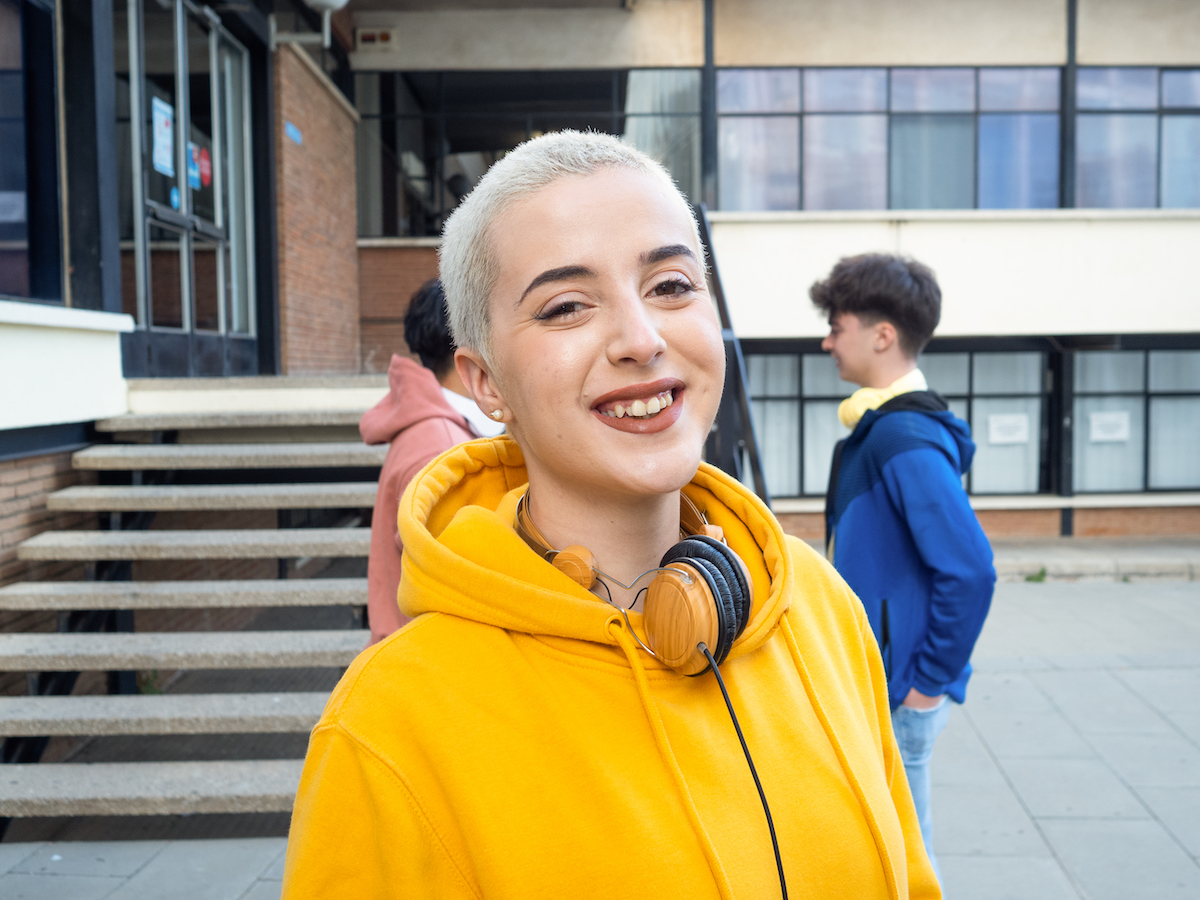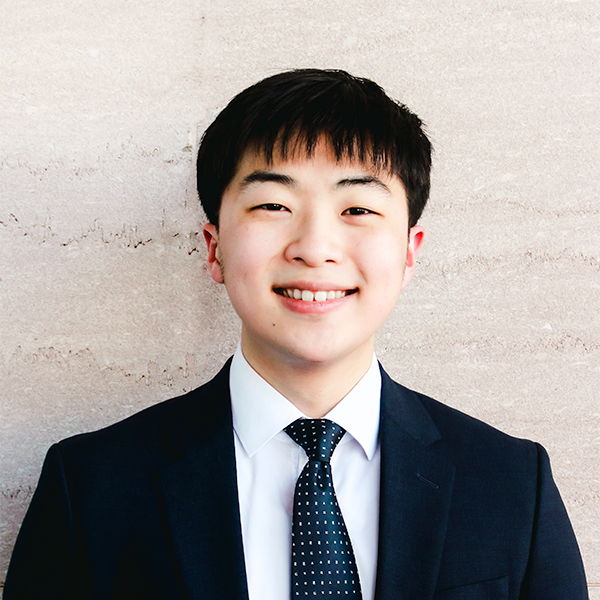Command Education was founded with the mission to empower each individual to find their passion while developing valuable life skills for college and beyond. Our students build upon their passions, creating dynamic applicant profiles that stand out to their dream schools. Our Senior Mentors work with students with a diverse range of skill sets and backgrounds. Some students begin working with our team with near-perfect grades and the ambition to attend one of the nation’s top schools, while others seek to level up their options or stand out to reputable state schools. Some come to Command Education simply wanting to find direction, motivation, and develop their soft-skills.
PARENT TIP
What matters most is not necessarily where your student enrolls, but how they use their four years on campus. In order to build an academic and professional network, establish themselves in their field, and make the most of their college experience, it is imperative that they develop the social, emotional, and executive functioning skills necessary for success. We know that a top college or university isn’t right for every student—our goal is to help students find the school at which they will flourish and chart their path for success in the future.
Below, you’ll find expert insights from our Senior Mentors about what it takes for students to level up their profile for the college application process—and beyond:
1. Build Confidence
Many students lose motivation and drive simply because they fall into the traps of comparing themselves to others, feeling that they have let down those they want to impress, or letting one mistake or bad grade define their abilities. These mentalities often prevent students from harnessing their own passions and send them spiraling into procrastination, self-doubt, and debilitating self-criticism. Helping students regain their trust in their unique skills and talents is often the first step toward motivating them to succeed. Our Senior Mentors know that the first step to coaching a student to reach their potential is instilling a sense of self-confidence and capability.
Tip from our Mentoring Team:
“I’ve worked with students with a variety of needs. Some have been average students who have struggled to motivate themselves in and outside of the classroom. The change I have seen in those students has been truly inspiring: I have witnessed these students gain confidence, develop authentic passions, build a real belief in their capabilities, and accomplish truly impressive things. I attribute this first to the fact that I genuinely care about every student I work with—even if they don’t yet care about themselves. Second, I take the time to learn about what excites each student, even if it doesn’t directly apply to or advance our work. If video games are the only thing that gets them talking initially, we will talk about video games! And finally, for better or for worse, I’ve found that my sense of humor resonates well with high school students; it has always been a valuable tool in keeping students engaged and listening.” —Sam, Senior Mentor
2. Develop Soft Skills
Developing soft skills such as time management, organization, communication, problem-solving, and flexible thinking is crucial for students who want to level up academically or with executive functioning. Students who struggle with procrastination or disorganization can quickly fall behind, a problem that snowballs as time goes on. Therefore, instilling these skills early in a student’s middle or high school career will help them lay a strong foundation for their high school careers both in and outside of the classroom and prepare them for the increased rigor of college coursework.
Tip from our Mentoring Team:
“The most common strategies I use with my students to combat procrastination are organization and goal-visualization. Following the S.M.A.R.T. model, I work with my students to create goals for themselves that are Specific, Measurable, Achievable, Relevant, and Time-Bound. Often students know where they want to end up, but don’t know where to start. Together, my students and I map out a plan of small, actionable steps that allow them to make steady progress while avoiding feeling overwhelmed. Progress, even in small doses, is invigorating; once students can clearly picture where they’re headed and understand the steps to get there, then all they have to do is go! I’m there as their guardrail and their cheerleader, keeping them on track and encouraging them to go full-speed ahead!” —Vincent, Senior Mentor
Premier Roadmap Package®
Command Education Senior Mentors offer personalized, one-on-one support to students starting as early as seventh grade! This unlimited package provides students with a comprehensive plan and step-by-step support from start to finish to lay a strong foundation for future college admission success.
3. Identify Academic Support
For many students, academic issues arise not from a lack of intelligence but a lack of support. The more students understand their learning styles, the more strategic they will be in tailoring their study habits and day-to-day academic work around what works best for them. Our team helps students do just this—Senior Mentors work with students to think critically about their skills and optimal learning conditions, trying out new techniques and approaches to studying, getting organized, and building a support apparatus to excel in and outside of the classroom. Meanwhile, Senior Tutors help students apply those skills toward their study habits, whether preparing for an AP Calculus exam or sitting for the SAT.
Tip from our Tutoring Team:
“A major part of my tutoring involves teaching students how to study more effectively. Instead of seeing learning as a series of isolated tasks, I encourage them to recognize how knowledge builds over time (I use the metaphor of a tower to help them visualize layers of materials building on top of each other—like a Jenga tower, it will topple if the bottom layers are unstable).” —Caleb, Senior Tutor
For more information about how our Senior Tutors help students find their academic motivation, check out our Q&A with Caleb!
4. Cultivate Leadership Abilities
Whether running for president of a club or bringing new ideas to a group (along with a plan to execute them), stepping up in their communities provides students valuable opportunities for growth while enriching their applicant profile. Serving in a leadership role can be one of the most rewarding opportunities for students to deepen their engagement with their passions. Students can start small by stepping up in clubs and extracurricular activities that interest them, running for formal leadership positions during their junior year of high school. Alternatively, starting their own club or organization tailored to their interests can allow students to develop as a leader while also building a community around their passion! At the same time, assuming a leadership role and mobilizing one’s peers are challenging tasks, and they require time and effort to learn. Our Senior Mentors offer intentional coaching for students as they seek to grow as changemakers in their communities.
Tip from our Mentoring Team:
“Empowering students to grow into leaders in their communities is at the core of Command Education’s mentorship model. Once students have established the foundational skills they need to thrive, Senior Mentors work with them to hone their interests and passions through extracurricular activities. As students begin to identify the activities and involvements that are most exciting to them, they work with their Senior Mentors to identify leadership opportunities and avenues to contribute creatively within their communities.” —Ethan, Director of Mentoring
5. Set Goals
Goal-setting looks different for every student—some students may set their sights on a top school and seek to take the most challenging coursework available to them, while others identify a program that interests them at their local state school and seek to hone their niche interests within their intended field. Our Senior Mentors meet students where they are and help them set achievable yet ambitious goals for their high school career based on their skills, abilities, and future plans. As students become more rooted in their skills and passions, they are able to look toward the future and set more concrete and specific goals for college and beyond. In this stage, Senior Mentors help students evaluate their college options on the basis of their academic and career interests, test scores, and grades, and identify schools that fit their personalities and passions.
Tip from our Mentoring Team:

Case Study: James
James began working with Command Education during the spring of his freshman year. The youngest of three siblings, James had always struggled to keep up with his older brother and sister, both of whom had enrolled in top-tier schools after graduation. At the start of freshman year, James enrolled in a highly ranked New York City public school, but the pressure he felt to rise to the talents of both his peers and his family members resulted in a loss of confidence, and he quickly fell behind.
When James began working with Senior Mentor Josiah, his first semester GPA was 2.5, and he had retreated from activities that used to excite him. Josiah spent their first few sessions seeking to truly get to know James—they discussed his interests in video games and playing basketball on the weekends. Josiah continually encouraged James to begin participating in activities both in and outside of the classroom once again, and James began to open up more. He increasingly gained the courage to identify where his lack of motivation and academic struggles originated.
Identifying procrastination and self-doubt as two major contributing factors, Josiah worked with James at the start of the fall semester to create a detailed planner. Together, they broke down projects and assignments into manageable chunks so that they no longer seemed as intimidating. They also practiced using the Pomodoro method, which allowed James frequent breaks to stretch his legs and return to a given project with better focus.
James brought these skills and newfound self-confidence into the classroom, where he started sitting in the front of the room, actively listening and taking notes, and sought additional help as needed. Over the course of his sophomore year, he slowly became a leader in the classroom.
By the start of his junior year, James had buoyed his grades, gotten involved in a few clubs at his high school, and joined a basketball rec league that practiced on the weekends. He began telling Josiah about the need for better basketball facilities in his area so that more kids could enjoy the camaraderie and physical benefits of playing ball, and he realized that his weekend hobby could become an opportunity to contribute to his community. He motivated his rec team to start fixing up outdoor courts nearby—from raking leaves to repainting foul lines to repairing broken nets. As kids and families began showing up in greater numbers, James decided to take his initiative to the next level by starting a shoe drive in which students and families at his school could donate their lightly worn sneakers to those who could not afford a new pair.
The confidence James built through his volunteer work spilled into his academic work, and he strove to make the most of his senior year, bringing his GPA to a 3.5 and earning a 1280 on the SAT. Last spring, James was accepted to Boston College, where he is studying Applied Psychology and Human Development.
*Note: Names and identifying information has been changed to protect student privacy.








